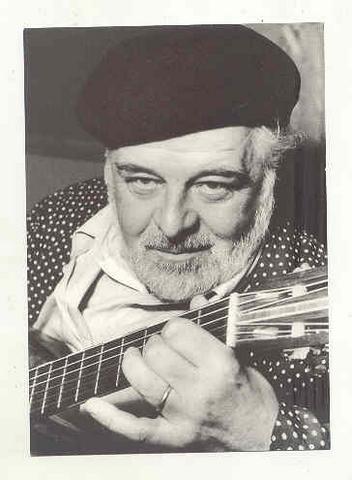
Evert Taube was born in Gothenburg, and brought up on the island of Vinga, Västergötland, where his father, Carl Gunnar Taube, a ship's captain, was the lighthouse keeper. His mother was Julia Sofia Jacobsdotter.
Having spent two years (1907-1909) sailing around the Red Sea, Ceylon and South Africa, Taube began his career as a singer-songwriter and collector of sailors' songs, and on Christmas Eve1908, on board the Norwegian ship SS Bergen headed for Spain, he performed "Turalleri, piken fra Hamburg".
Following a five-year stay (1910-1915) in Argentina, he developed an interest in Latin American music and introduced the Argentinian tango to Sweden in the twenties. Contrary to widespread perceptions, Taube did not work as a gaucho on the Pampas but as a foreman supervising workers who were digging canals designed to prevent flooding on the vast plains.
 He is perhaps best known as a depictor of the idyllic, with motifs from the Swedish archipelagoes and from the Mediterranean, from a perspective every Swedish four-week holiday tourist could recognize. But he also wrote the most hitting anti-fascist anti-war poem in the Swedish language, "Målaren och Maria Pia", about the Italian war in Abyssinia, from the late 30s, as well as the anthem of the budding environmental movement in the 70s, "Änglamark" (originally written for the successful 1971 "Hasseåtage"-film The Apple War).
He is perhaps best known as a depictor of the idyllic, with motifs from the Swedish archipelagoes and from the Mediterranean, from a perspective every Swedish four-week holiday tourist could recognize. But he also wrote the most hitting anti-fascist anti-war poem in the Swedish language, "Målaren och Maria Pia", about the Italian war in Abyssinia, from the late 30s, as well as the anthem of the budding environmental movement in the 70s, "Änglamark" (originally written for the successful 1971 "Hasseåtage"-film The Apple War).
On his 60th birthday in 1950, Taube received the Bellman Award from the Swedish Academy and in 1960 he received an honorary doctorate from Gothenburg University. He was elected as a member of the Royal Swedish Academy of Music in 1970.
1985 statue of Evert Taube at Järntorget in Stockholm
He died in Stockholm and is buried on the graveyard of Maria Magdalena Church on Södermalm.




No comments:
Post a Comment